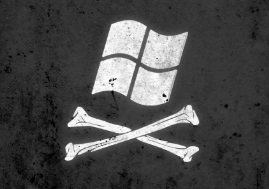
Free cross-platform messaging app Telegram isn’t playing ball. An impressive 200,000,000 people used the software in March (including a growing number for piracy purposes) and founder Pavel Durov says he will not compromise their security, despite losing a lawsuit against the Federal Security Service which compels him to do so.
“Telegram doesn’t have shareholders or advertisers to report to. We don’t do deals with marketers, data miners or government agencies. Since the day we launched in August 2013 we haven’t disclosed a single byte of our users’ private data to third parties,” Durov said.
“Above all, we at Telegram believe in people. We believe that humans are inherently intelligent and benevolent beings that deserve to be trusted; trusted with freedom to share their thoughts, freedom to communicate privately, freedom to create tools. This philosophy defines everything we do.”
But by not handing over its keys, Telegram is in trouble with Russia. The FSB says it needs access to Telegram messages to combat terrorism so, in response to its non-compliance, telecoms watchdog Rozcomnadzor filed a lawsuit to degrade Telegram via web-blocking. Last Friday, that process ended in the state’s favor.
After an 18-minute hearing, a Moscow court gave the go-ahead for Telegram to be banned in Russia. The hearing was scheduled just the day before, giving Telegram little time to prepare. In protest, its lawyers didn’t even turn up to argue the company’s position.
Instead, Durov took to his VKontakte account to announce that Telegram would take counter-measures.
“Telegram will use built-in methods to bypass blocks, which do not require actions from users, but 100% availability of the service without a VPN is not guaranteed,” Durov wrote.
Telegram can appeal the blocking decision but Russian authorities aren’t waiting around for a response. They are clearly prepared to match Durov’s efforts, no matter what the cost.
In instructions sent out yesterday nationwide, Rozomnadzor ordered ISPs to block Telegram. The response was immediate and massive. Telegram was using both Amazon and Google to provide service to its users so, within hours, huge numbers of IP addresses belonging to both companies were targeted.
Initially, 655,352 Amazon IP addresses were placed on Russia’s nationwide blacklist. It was later reported that a further 131,000 IP addresses were added to that total. But the Russians were just getting started.
Servers.ru reports that a further 1,048,574 IP addresses belonging to Google were also targeted Monday. Rozcomnadzor said the court ruling against Telegram compelled it to take whatever action is needed to take Telegram down but with at least 1,834,996 addresses now confirmed blocked, it remains unclear what effect it’s had on the service.
Friday’s court ruling states that restrictions against Telegram can be lifted provided that the service hands over its encryption keys to the FSB. However, Durov responded by insisting that “confidentiality is not for sale, and human rights should not be compromised because of fear or greed.”
But of course, money is still part of the Telegram equation. While its business model in terms of privacy stands in stark contrast to that of Facebook, Telegram is also involved in the world’s biggest initial coin offering (ICO). According to media reports, it has raised $1.7 billion in pre-sales thus far.
This week’s action against Telegram is the latest in Russia’s war on ‘unauthorized’ encryption.
At the end of March, authorities suggested that around 15 million IP addresses (13.5 million belonging to Amazon) could be blocked to target chat software Zello. While those measures were averted, a further 500 domains belonging to Google were caught in the dragnet.
Source: TF, for the latest info on copyright, file-sharing, torrent sites and more. We also have VPN reviews, discounts, offers and coupons.

 For many years, Microsoft and the Software Alliance (BSA) have carried out piracy investigations into organizations large and small.
For many years, Microsoft and the Software Alliance (BSA) have carried out piracy investigations into organizations large and small.
 After first targeting torrent and regular streaming platforms with blocking injunctions, last year Village Roadshow and studios including Disney, Universal, Warner Bros, Twentieth Century Fox, and Paramount began looking at a new threat.
After first targeting torrent and regular streaming platforms with blocking injunctions, last year Village Roadshow and studios including Disney, Universal, Warner Bros, Twentieth Century Fox, and Paramount began looking at a new threat. While piracy today is more widespread than ever, the urge to share content online has been around for several decades.
While piracy today is more widespread than ever, the urge to share content online has been around for several decades.  In recent years Google has had to cope with a continuous increase in takedown requests from copyright holders, which target pirate sites in search results.
In recent years Google has had to cope with a continuous increase in takedown requests from copyright holders, which target pirate sites in search results.


 Assisted by police in France and the Netherlands,
Assisted by police in France and the Netherlands, 


 During the fall of 2014, Hollywood launched
During the fall of 2014, Hollywood launched